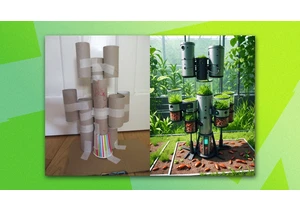A group of authors is suing artificial intelligence startup Anthropic, alleging it committed “large-scale theft” in training its popular chatbot Claude on pirated copies of copyrighted books.
While similar lawsuits have piled up for more than a year against competitor OpenAI, maker of ChatGPT, this is the first from writers to target Anthropic and its Claude chatbot.
The smaller San Francisco-based company — founded by ex-OpenAI leaders — has marketed itself as the more responsible and safety-focused developer of generative AI models that can compose emails, summarize documents and interact with people in a natural way.
But the lawsuit filed Monday in a federal court in San Francisco alleges that Anthropic’s actions “have made a mockery of its lofty goals” by tapping into repositories of pirated writings to build its AI product.
“It is no exaggeration to say that Anthropic’s model seeks to profit from strip-mining the human expression and ingenuity behind each one of those works,” the lawsuit says.
Anthropic didn’t immediately respond to a request for comment Monday.
The lawsuit was brought by a trio of writers — Andrea Bartz, Charles Graeber and Kirk Wallace Johnson — who are seeking to represent a class of similarly situated authors of fiction and nonfiction.
While it’s the first case against Anthropic from book authors, the company is also fighting a lawsuit by major music publishers alleging that Claude regurgitates the lyrics of copyrighted songs.
The authors’ case joins a growing number of lawsuits filed against developers of AI large language models in San Francisco and New York.
OpenAI and its business partner Microsoft are already battling a group of copyright infringement cases led by household names like John Grisham, Jodi Picoult and “Game of Thrones” novelist George R. R. Martin; and another set of lawsuits from media outlets such as The New York Times, Chicago Tribune and Mother Jones.
What links all the cases is the claim that tech companies ingested huge troves of human writings to train AI chatbots to produce human-like passages of text, without getting permission or compensating the people who wrote the original works. The legal challenges are coming not just from writers but visual artists, music labels and other creators who allege that generative AI profits have been built on misappropriation.
Anthropic and other tech companies have argued that training of AI models fits into the “fair use” doctrine of U.S. laws that allows for limited uses of copyrighted materials such as for teaching, research or transforming the copyrighted work into something different.
But the lawsuit against Anthropic accuses it of using a dataset called The Pile that included a trove of pirated books. It also disputes the idea that AI systems are learning the way humans do.
“Humans who learn from books buy lawful copies of them, or borrow them from libraries that buy them, providing at least some measure of compensation to authors and creators,” the lawsuit says.
———
The Associated Press and OpenAI have a licensing and technology agreement that allows OpenAI access to part of AP’s text archives.
—Matt O’Brien, AP Technology Writer
Login to add comment
Other posts in this group


Danish artist Andreas Refsgaard has been combining generative AI with handcrafted prototypes to create unique glimpses of what’s ahead—a future that could one day make artists like him obsolete.

Is it time to BeReal again?
In 2022, the photo-sharing app surged in popularity, won Apple’s “App of the Year,” and even earned its own SNL skit. Once a day, at a random time, users were

A bipartisan group of lawmakers on Wednesday vowed to keep Chinese artificial i

Who’s monitoring the situation right now?
As headlines continue to be dominated by news of missile attacks, retaliations, and calls for ceasefire, there are no shortage of situations to

Hackers backing Tehran have targeted U.S. banks, defense contractors and

When Tony Bates became chairman and CEO of Genesys in 2019, the company was already a global leader in contact center software. But Bates was determined
